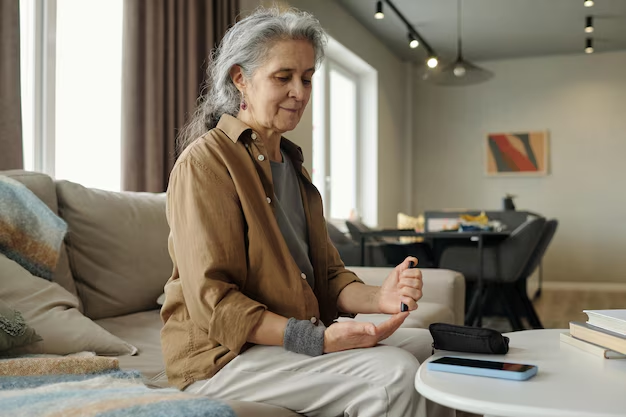Living with Parkinson's Disease: Understanding Longevity and Quality of Life
When diagnosed with Parkinson's Disease, one of the inevitable questions that arise is: How long can a person live with this condition? While there is no definitive answer due to the individual nature of the disease and its progression, understanding the factors that affect longevity and quality of life can provide some clarity. Let’s explore the multi-faceted aspects of Parkinson’s Disease, offering insights into what life might look like living with this condition, and how to enhance life expectancy and quality.
What is Parkinson's Disease?
Parkinson’s Disease, a progressive neurodegenerative disorder, primarily affects movement. It can lead to a wide range of symptoms, including tremors, stiffness, and difficulty with balance and coordination. As the disease progresses, it can also affect cognitive function, mood, and a variety of physical systems. Understanding the nature of Parkinson's is crucial in managing its progression and impact on life expectancy.
Key Characteristics of Parkinson's Disease
- Tremors: Often starting in the hands or fingers.
- Stiffness: Limiting the range of motion and causing discomfort.
- Bradykinesia: Slowness of movement, making everyday tasks challenging.
- Postural Instability: Increased risk of falls due to balance issues.
Life Expectancy with Parkinson's: What Factors Matter?
The life expectancy of individuals diagnosed with Parkinson's varies, largely influenced by how well the disease is managed and the presence of any other health conditions.
Important Influencing Factors
- Age at Diagnosis: Patients diagnosed at a younger age typically have a longer life expectancy compared to those diagnosed later in life.
- Overall Health: Pre-existing conditions can significantly affect survival rates.
- Disease Management: Regular medical care and effective management strategies can improve quality of life and possibly extend longevity.
- Support Systems: Strong family and social support appears to positively impact outcomes and emotional well-being.
Tips for Enhancing Quality of Life with Parkinson’s
Living with Parkinson’s Disease involves addressing physical, emotional, and social needs. This proactive approach not only helps in managing symptoms but may also improve longevity.
1. Stay Active
Regular physical activity is crucial. Exercises tailored to balance, strength, and flexibility can help maintain mobility and reduce fall risks. Walking, swimming, and specialized movement classes like tai chi or yoga are highly recommended.
2. Prioritize Nutrition
A balanced diet supports overall health and can alleviate certain symptoms. Consuming a diet rich in fruits, vegetables, whole grains, and lean proteins while minimizing processed foods can be beneficial.
3. Mental Health Matters
Depression and anxiety are common in Parkinson's patients. Counseling, support groups, and mindfulness practices can provide relief and foster a positive mental state.
4. Medication Management
Properly coordinating medication regimens with healthcare providers ensures that symptoms are effectively managed. This can also involve regular adjustments as the disease progresses.
5. Utilize Therapy Options
Physiotherapy, occupational therapy, and speech therapy can significantly improve life skills, communication abilities, and provide tools to manage daily challenges.
The Role of Innovations and Research
Emerging research and technological advancements are continuously shaping the landscape of Parkinson's treatment. While there is no cure, several treatments are promising in managing symptoms and potentially slowing disease progression.
1. Medication Advancements
Innovations in medication delivery methods and formulations, including extended-release drugs, offer better symptom control.
2. Surgical Interventions
Deep brain stimulation (DBS) is a surgical procedure that can reduce symptoms for some individuals. The decision to pursue surgical options should be made carefully with a neurologist.
3. The Potential of Genetic Research
Research into genetic factors and personalized medicine holds promise for future treatment advancements. Understanding individual genetic makeup could lead to more effective, tailored treatments.
Community and Caregiver Support
A robust support network is invaluable for improving the experiences of both individuals with Parkinson’s and their caregivers.
1. Engaging with Support Groups
Connecting with others facing similar challenges can provide emotional support, practical advice, and companionship.
2. Educating Caregivers
Informed caregivers can better manage the unique challenges presented by Parkinson’s. Training and workshops can provide vital skills and techniques.
3. Creating a Safe Home Environment
Ensuring a safe living space can prevent accidents and reduce stress. Simple modifications like grab bars, non-slip mats, and accessible home layouts make a big difference.
Insightful Closing Thoughts
Understanding the complex nature of Parkinson’s Disease can empower individuals and their families to make informed decisions. By focusing on proactive management and leveraging available resources, individuals with Parkinson’s can live fulfilling and active lives. The key lies in a comprehensive approach that integrates medical, physical, and emotional care strategies, while embracing the latest advancements and leaning on community support.
🔍 Quick Reference Tips & Key Takeaways
- Stay Active 🤸♂️: Engage in regular, appropriate exercise.
- Nutritional Balance 🍎: Maintain a healthy diet for overall wellness.
- Mental Health 🧘♀️: Address psychological needs through therapy.
- Medication & Therapies 💊: Work closely with healthcare providers.
- Innovative Treatments ⚙️: Stay informed about emerging research.
- Support Networks 👥: Utilize community and caregiver support for enhanced quality of life.

Related Articles
- Are There Environmental Causes Of Parkinsons
- Can Alcohol Cause Parkinson's
- Can Concussions Cause Parkinson's
- Can Females Get Parkinson Disease
- Can Head Trauma Cause Parkinson's
- Can Parkinson Disease Cause Dizziness
- Can Parkinson's Affect Eyesight
- Can Parkinson's Affect Memory
- Can Parkinson's Affect Speech
- Can Parkinson's Affect Vision
